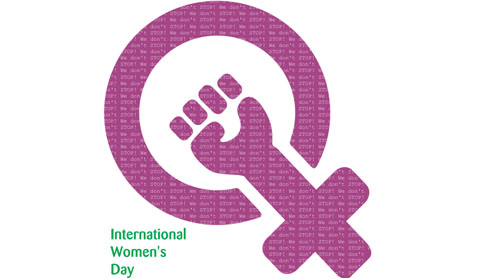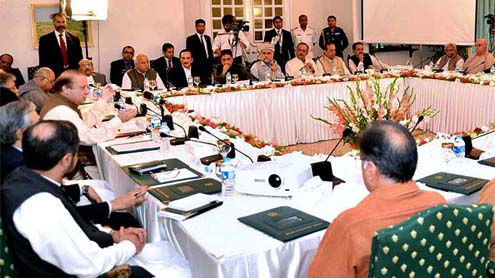 International Women’s Day was celebrated worldwide, including Pakistan, yesterday. Celebrations on the day encompassed many kinds of activity, including conferences, marches, cultural events, etc.
International Women’s Day was celebrated worldwide, including Pakistan, yesterday. Celebrations on the day encompassed many kinds of activity, including conferences, marches, cultural events, etc.
As can be expected, women brought their own unique colour and joy to these festivities. The general view that emerged from the day was that women in Pakistan have reason to celebrate the progress they have made so far, but there is still a long way to go. The undeniably bleak prospects for millions of women in our country, particularly in the rural areas, are hardly a secret. First the traditional attitudes and forms of women’s oppression: these include perceiving and treating women as chattel, to be dealt with accordingly and not as human beings.
Patriarchy still rules in Pakistan, and despite the undoubtedly better situation of urban women, traditional and hidebound attitudes still have a considerable hold on society and particularly men’s minds. Physical intimidation and subjugation lies at the heart of phenomena such as rape, domestic violence, acid attacks, etc. They all have in common the ability and penchant of the so-called stronger sex to physically abuse women. Unfortunately, for a host of reasons, including lack of education, awareness of rights and the shame associated in our society with bringing domestic issues into the public domain, most abused women stay shy of accosting their torturers.
The law enforcement and judicial regime in our country suffers from male domination and its accompanying patriarchal grip. The list of women’s woes is far too long for this space, but dishonourable mention must be made of practices such as ‘honour’ killings, trafficking, vani, sawara, early or forced marriages and the imposition of jirga decisions on women’s fate.This government can take satisfaction from the fact that it has legislated for women’s rights during the last four years. It is perfectly understandable that the PPP, associated in terms of political culture with ideas such as women’s equality, should have focused more than ever on women’s issues after the assassination of its leader, Benazir Bhutto in December 2007.
To bring these bills into the light of day and finally get them passed through the somewhat labyrinthine legislative process in parliament was the collective effort of women parliamentarians and civil society activists cutting across all parties and schools of thought. This women’s solidarity across party or other lines has yielded a body of pro-women legislation, for which all these parliamentarians and civil society activists desrve congratulations and our thanks. However, both in the legislative field as well as on the ground, much more is required, not the least in terms of implementation of the protections and rights extended to women through such legislation.
Lest some people think that the only problems concerning women lie in the rural areas, a cautionary note is in order. In the ‘modernising’ urban environment too, all is not hunky dory as far as women are concerned. The hangovers of patriarchal attitudes and values lie skin deep beneath the liberal veneer most urban men like to sport. It is when this liberalism is tested in crises or crunch situations that the demons of patriarchy once again raise their heads. Education and the widening of horizons and values it brings is in itself no guarantee against lingering antediluvian ideas.
We live in a world in which capitalism is increasingly seen as the ‘natural’ order. In the first place this assertion is questionable on the touchstone of philosophy, history, politics, economics and sociology. In the second place, the capitalist system brings in its wake a new form of women’s subjugation, one infinitely more subtle and difficult to comprehend: the commodification of women. This is reflected in phenomena like using women and their bodies to sell products and even create the desire for certain products, advertised as quintessential for a desirable, glamorous lifestyle.
So while modern capitalist society, towards which we are all tending, eliminates the most brutal and crude forms of patriarchy found in feudal and tribal societies, at the same time it reduces women to vehicles for the purveying of a range of commodities, while also placing enough temptation in their path to become consumer digits. While women in Pakistan have a mammoth struggle still to wage against feudal and tribal social practices, they need to reflect on the limits imposed on equality by a capitalist system that is inherently unequal itself. – Dailytimes












